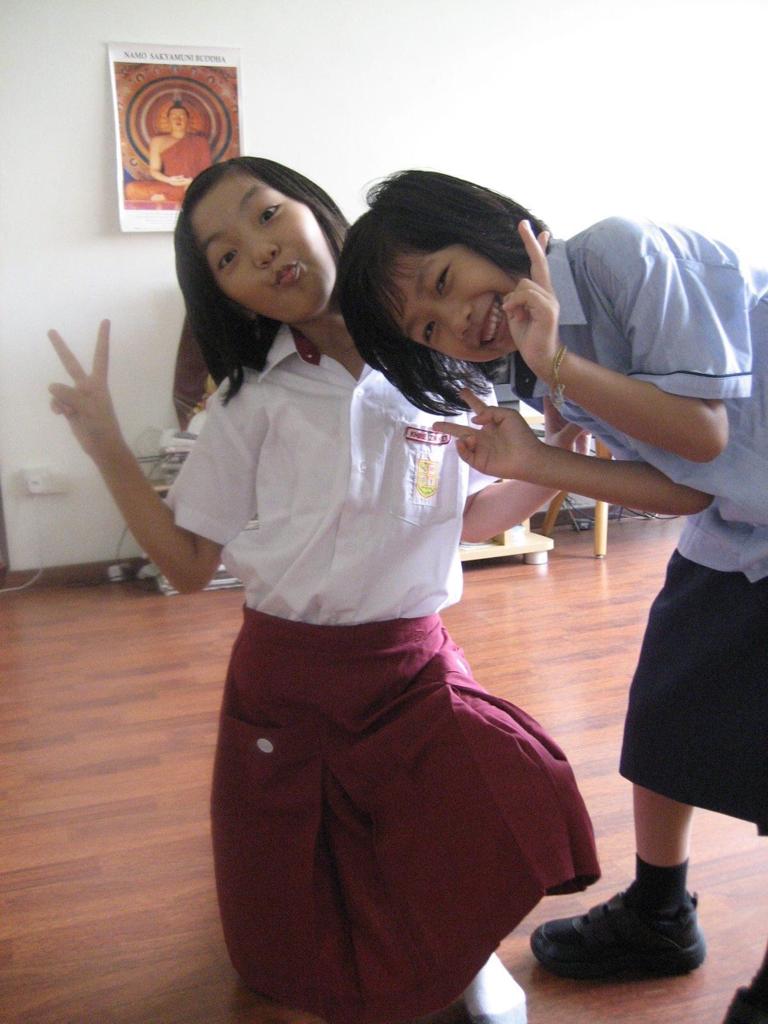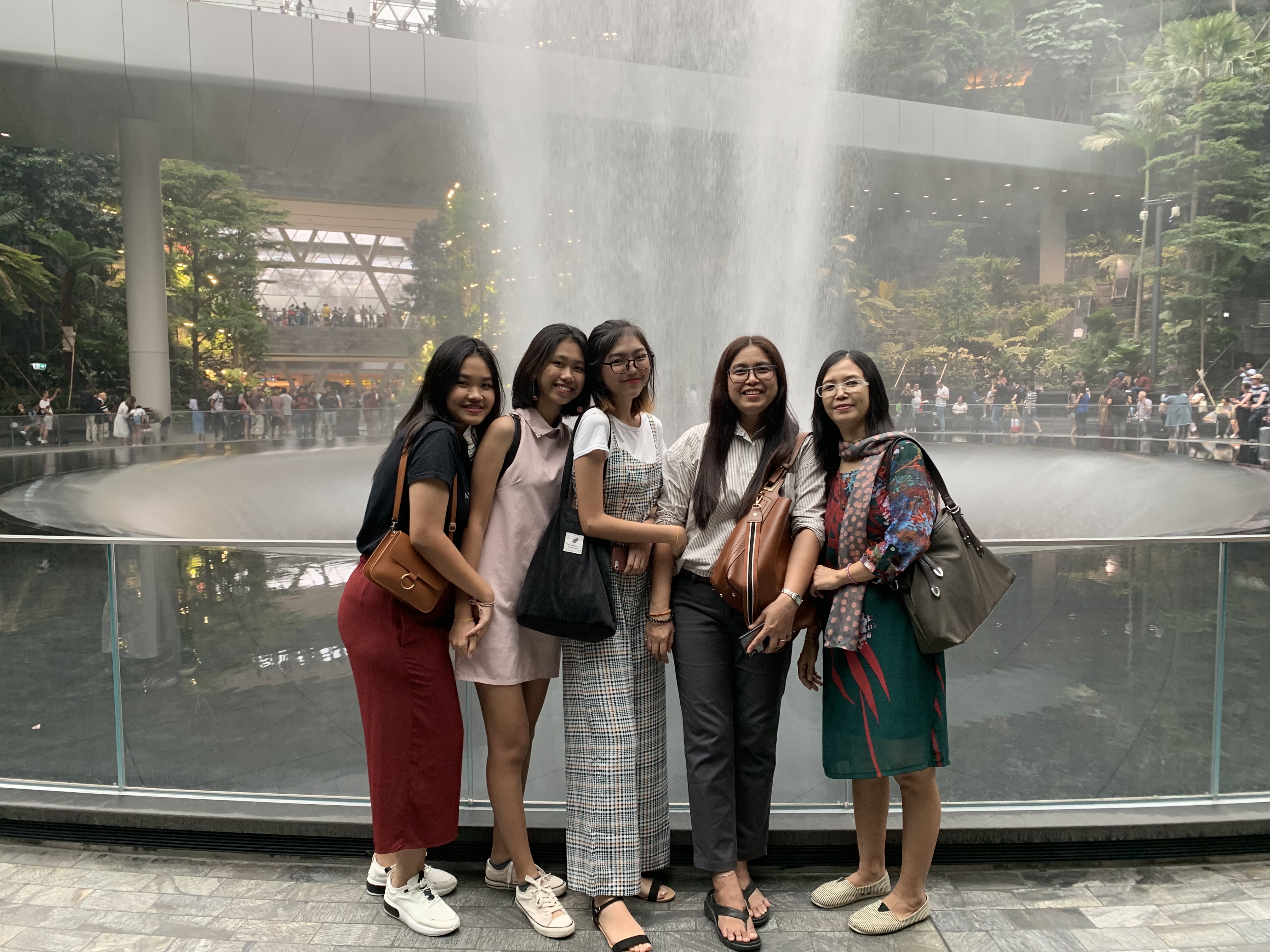Follow us on Telegram for the latest updates: https://t.me/mothershipsg
MOTHERSHIP ESSAY COMPETITION: What does it mean to “sound local” or “speak like a local” in Singapore?
In June, Mothership launched our inaugural essay competition. Over the course of one month, we received around 300 submissions from readers of different ages and backgrounds.
Khine Zin Htet was jointly awarded third place with Muhamad Iqbal bin Mohd Amerl, receiving a prize of S$200.
"I chose Khine's essay for the easy read but also for her love and perhaps a silent call to belong to her adopted land through speaking and sounding like a local. It allows the reader, especially a Singaporean, to ponder if the Singaporean identity should be one of birth and/or one of assimilation."
- Anthea Ong, social advocate and former-Nominated Member of Parliament
"The irony of a foreigner having to learn Singlish and sounding local to fit in with Singaporeans, while Singaporeans are constantly admonished to speak better English to integrate into the rest of the world is really about knowing who you want to be but not knowing who you are — the moment you are conscious of who you have become."
- Belmont Lay, Mothership founding editor
About the author: Khine Zin is a 21-year-old undergraduate majoring in Communications and New Media at the National University of Singapore. She has been studying in Singapore for more than half of her life, and considers it her second home.
The recent coup in Myanmar allowed her to realise the privilege she has living in Singapore, and she has been helping out in her own ways, such as through donations funded through her small business selling handmade products.
By Khine Zin Htet
When I first came to Singapore from Myanmar at the age of eight, I had much trouble understanding what my new peers in school were saying to me.
 Khine Zin (left) and her sister (right) on their first day of local school in Singapore. Photo courtesy of Khine Zin Htet.
Khine Zin (left) and her sister (right) on their first day of local school in Singapore. Photo courtesy of Khine Zin Htet.
I was confused. Why were these new, friendly faces speaking in such a strange language that sounded like English yet at the same time sounded completely foreign?
Why did they add a "leh" to the end of their questions and why did they lament "walao!" whenever they were given extra homework? I soon discovered the term "Singlish" — an English creole that most Singaporeans speak.
While it took me by surprise at first, I slowly adapted to my surroundings and started to incorporate more Singlish in my speech as the days went by. Pretty soon, I sounded almost as Singaporean as my friends.
Picking up Singlish was a way of survival
My mother hugely disapproved of this and chided me often for learning only "bad" things in school despite paying such expensive tuition fees.
She liked to compare me to our then next-door neighbour, an old grumpy lady who screamed and swore daily (in Singlish, of course) to whoever the lucky recipient was on that day.
"Be careful or you will end up as vulgar as that old auntie one day," was my mother’s favourite way of asking me to stop speaking in Singlish.
What my mother didn’t know was that speaking in Singlish to me was not simply an adaptation to the Singaporean lifestyle or an influence from my friends; it was a way of survival.
I don’t know if it was just my self-consciousness, but I could never shake the feeling that my peers were constantly judging me for my "foreignness". I thought that it was impossible for me to fit in completely without changing myself to be more like them.
So, I stopped bringing lunch boxes and instead begged my mother to give me daily allowances so that I could queue at the school canteen along with my classmates.
I stopped speaking English in the way that I had learned previously from my international school in Myanmar. Instead, I started speaking in Singlish so that I could join my classmates’ conversations and joke around with them without sticking out like a sore thumb.
Of course, like anyone learning a new language, I made numerous mistakes along the way while trying to speak Singlish.
I would add a "lah" unnecessarily to the end of sentences and once, in an argument with a friend, I angrily described her as "bojio" instead of "boliao". (Any leverage I had in winning the argument instantly flew out of the window the moment I uttered the word.)
Discovered beauty of Singlish
Despite these blunders, I did not give up speaking Singlish, not just because I wanted to fit in but also because I discovered the beauty of the language.
If formal English is your strict tiger mom, Singlish is like your favourite aunt. It allows us to lose formality without losing respectfulness, as well as hostility — most of the time, letting us speak comfortably with anyone from hawker aunties to homeroom teachers.
Having stayed in Singapore for more than 12 years, I now feel that not speaking in Singlish sometimes makes me sound less friendly. Singlish allows me to be extra approachable and connect with others easily.
 Khine Zin with her family and friends. Photo courtesy of Khine Zin Htet.
Khine Zin with her family and friends. Photo courtesy of Khine Zin Htet.
It goes without saying that I now find myself sounding awkward whenever I have to use standard English to speak to anyone.
The double-edged sword of "Good English"
Years have gone by since I first discovered Singlish and now, I am studying in a local university where I am often required to make oral presentations. This is where I am compelled yet again to change my accent — this time to fit the criteria for oral examinations.
I also notice that less of my peers speak in Singlish in the classrooms and instead choose to speak in what has been ingrained in us by numerous "Speak Good English" programmes as "Good English".
Yet, almost everyone goes back to speaking in Singlish once we leave the classrooms. Those of us who continue using "Good English" are often judged for being "fake" and trying to be "cool" or "Western".
Although I question why there is a need to comment on other people’s accents, I also realise that Singlish has been a part of every Singaporean’s life and without it, it can knock down the conventional idea of what it is to be a Singaporean.
Singlish is indispensible
The fact that Singlish is not forgotten (for most people) despite the need for proper English speech in our lives indeed shows how Singlish is indispensable. While it may not be essential, Singlish makes the Singaporean identity stronger.
There are numerous multi-media content that feature Singlish as a trait of Singapore. One such content creator that I particularly enjoy watching is "the singapolian" on TikTok.
She embraces the "ah lian" personality with pride and good humour, and many people (as we can tell by the comments under her videos and others) enjoy seeing such localised personas going viral on the internet.
For me, despite being a foreigner, I have been nurtured by the Singaporean environment, and Singlish is one quality that has been ingrained in me.
While I have not forgotten my roots, it is undeniable that Singapore has nurtured me into the person that I am today, and Singlish is just one trait of mine that is a testament to this fact.
Read our other essay competition winners here:
1st place:
2nd place:
3rd place (tied with Khine Zin):
Top photos courtesy of Khine Zin Htet.
If you like what you read, follow us on Facebook, Instagram, Twitter and Telegram to get the latest updates.
